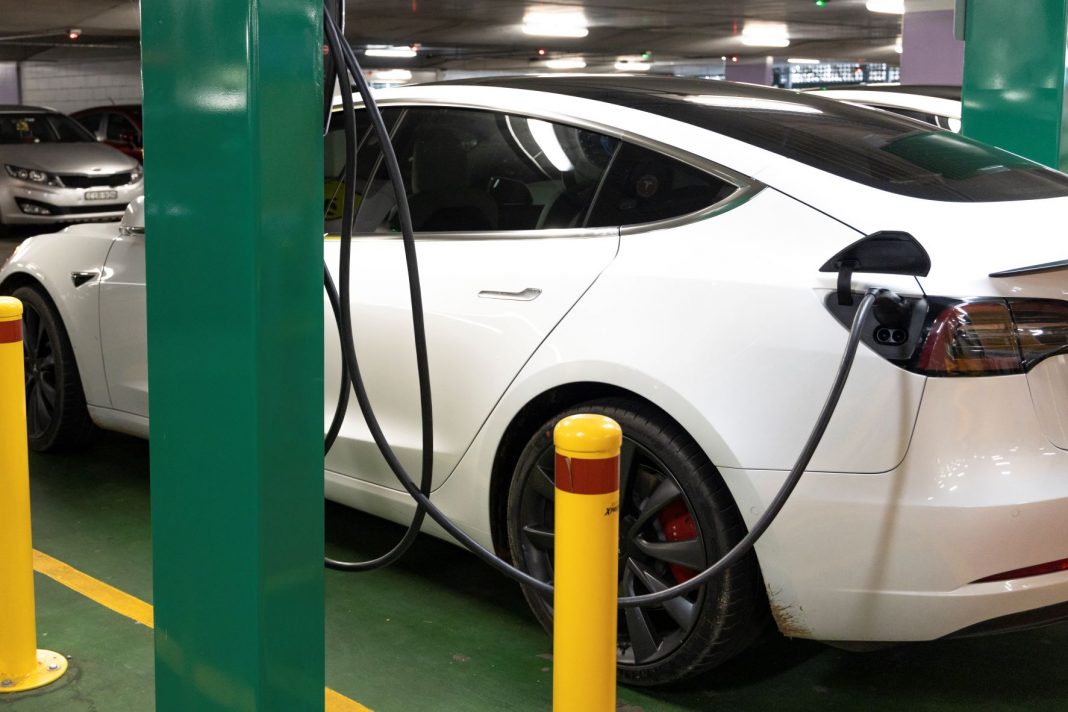The ACT continues to lead the nation in electric vehicle policy, according to the Electric Vehicle Council’s report published this week.
The ACT was rated 8 out of 10 rating in the EVC’s policy scorecard, narrowly beaten by NSW. Canberra has the most EVs on a per vehicle basis; 0.31% of its light vehicle fleet is electric.
More than 1,200 electric vehicles have been registered in the ACT. In Australia, 8,688 electric vehicles were sold in the first half of 2021, eclipsing the 6,900 electric vehicles sold over the whole of 2020.
“Zero emissions vehicles are the future, so the ACT Government will continue to support the uptake of electric vehicles,” said Shane Rattenbury, Minister for Emissions Reduction.
In the Parliamentary and Governing Agreement, the ACT Government has set a target that all new ACT vehicle sales shall be zero emission by 2030.
Mr Rattenbury said the ACT helped to pave the road to an EV revolution with zero stamp duty, two years of free registration for people newly registering new and second-hand EVs, $15,000 interest-free loans to reduce the up-front financial burden of electric vehicles and charging infrastructure, and rolling out a network of 50 public charging stations.
The ACT Government is also procuring a fleet of electric buses; will require new multiunit and commercial buildings to have EV charging facilities; and is investigating more incentives for businesses and the community sector to buy ZEVs.
“In the ACT, electric vehicles can take advantage of our 100% renewable electricity, making them genuinely zero emissions transport,” Mr Rattenbury said. “Ultimately, we aim to reduce transport emissions to zero, and all emissions to net zero, within the next 25 years.”
Electrical Vehicle Council chief executive Behyad Jafari said that while the ACT did not have a mandated target or fleet regulations, it was enthusiastically shifting to electric vehicles.
Mr Jafari said that a global shift towards electric vehicles was undeniable; the question for Australia was one of speed.
The states had improved their EV policy; NSW had introduced Australia’s best electric vehicle policy to date, an Electric Vehicle Strategy backed by almost $500 million of investment to accelerate the uptake of zero emissions vehicles.
The report awarded the Northern Territory and Tasmania 7 out of 10, and Queensland, South Australia, Victoria, and Western Australia 6 out of 10.
“The movement across most states and territories is now generally positive, and that provides greater confidence to private sector investors, which will pave the way for more places to charge and better services to support e-mobility,” Mr Jafari said.
However, the federal government, the report found, had not made meaningful inroads in line with other comparable jurisdictions around the world.
Australia is significantly behind the rest of the world in adopting electric vehicles: 1.57% of the total light vehicle market, compared to 2.3% in the USA, 6.2% in China, 10.7% in the UK, 13.5% in Germany, 32% in Sweden, 45% in Iceland, and almost 75% in Norway.
“The chief headwind at the moment is, unfortunately, a continued lack of leadership on electric vehicles at the federal level,” Mr Jafari said.
“After promising a national strategy two years ago, the Federal Government has failed to deliver.
“We need to see more electric vehicle models in Australia, particularly at lower price points. That’s happening slowly, but if we want to accelerate the process and attract the globally limited electric vehicle supply, we need policies enacted at the national level, like fuel efficiency standards.
“Australia has more to gain than most countries on electric vehicles. If we transition well, we’ll be able to meet our net zero goals, break our dependency of foreign oil, and improve our air quality.”
Mr Rattenbury agreed that there was much to be done, as the report highlighted.
“We have made good progress through state and territory action, but we need leadership at the national level,” he said.
“The report notes that Australia still remains an embarrassing laggard when it comes to transitioning to electric vehicles. It is evident that the Federal Government needs an electric vehicles policy roadmap to ensure everyone can benefit from the savings, technology, and clean air that electric vehicles can deliver.”



